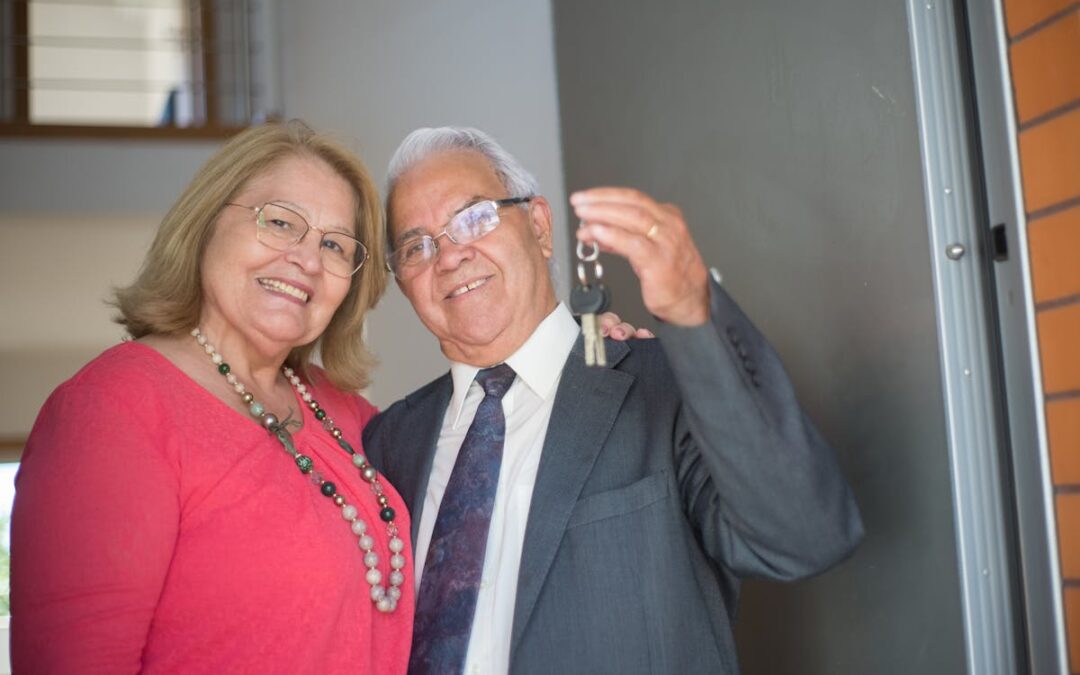Navigating real estate as a senior or a caregiver can be daunting. From deciding to downsize to understanding financial tools like reverse mortgages, there’s a lot to think about.
That’s why I was delighted to have Kelly Corsino as a guest on the Retirement Reimagined Podcast. Kelly is a realtor based in Southern California who specializes in working with seniors, and her advice was both practical and inspiring.
If you missed the episode, don’t worry—I’ve summarized some key takeaways from our chat. Whether you’re planning your future or helping a loved one, these tips can really help.
You can watch the entire podcast episode here:
Respecting and Supporting Seniors in Real Estate
Kelly and I began by talking about how seniors sometimes feel dismissed or patronized in the real estate process. That’s something she’s working to change.
Her approach focuses on respect and open communication. She ensures her clients feel empowered to make informed choices, adapting to their preferences—whether that means using technology or sticking to traditional methods.
Trust is the cornerstone of her work, and it all starts with treating seniors as capable individuals.
Here’s How Kelly Prioritizes Respect:
- Avoids using condescending language.
- Communicates in ways that suit the client’s needs (printed materials, digital options, etc.).
- Builds trust by valuing their input and decisions.
Addressing the Unique Challenges Seniors Face
Real estate for seniors involves more than just buying or selling a house—it’s about addressing unique hurdles. Kelly explained how she helps clients tackle issues like outdated properties, accessibility concerns, and even tax considerations.
One of the most exciting solutions we discussed was California’s Prop 19, which offers tax benefits to seniors looking to downsize. Kelly even made a YouTube video with a tax attorney to explain this legislation, and it’s been a game-changer for many.
Challenges Seniors Often Face:
- Deferred maintenance on older homes.
- Properties that don’t meet ADA standards.
- Family dynamics or complex estate planning.
- Worry about scams or financial risks.
How Kelly Overcomes These Challenges:
- Creates comprehensive plans that include family and financial goals.
- Provides clear, accessible information about options like Prop 19.
- Advocates for clients, even when they face pressure from others.
Reverse Mortgages: A Tool for Strategic Planning

Reverse mortgages sometimes get a bad reputation, but they can be a strategic option—not just a last resort. Since I specialize in reverse mortgages, I was eager to share my insights with Kelly, and together, we discussed their potential.
How Reverse Mortgages Can Help:
- Free up liquidity.
- Allow for investments or financial support for family.
- Enable other purchases, like a vacation home.
For instance, instead of spending $800,000 in cash on a home, a client could use a reverse mortgage to buy the same property for $500,000, keeping $300,000 for other needs. The key is understanding your options, which a knowledgeable mortgage broker can help you explore.
Thinking Outside the Box: Kelly’s Success Stories
Kelly’s dedication to her clients shone through in the stories she shared. Here are a couple of standout examples:
Case Study: Helping a Widow Transition
A widow in her 70s lived in an old home that wasn’t safe or accessible. Instead of recommending costly renovations, Kelly suggested a single-story home. When the widow’s son temporarily moved in, Kelly identified a better solution. They combined resources to purchase a home with space for an Accessory Dwelling Unit (ADU), creating a long-term setup that worked for both.
Case Study: Advising Against Selling
In another instance, Kelly encouraged a client to keep his $5 million home instead of selling. By considering tax implications and generational wealth, he realized staying put was best for his family. Kelly even connected him with an elevator specialist to make the house more accessible.
Helping Seniors Cope with Emotional Challenges
Downsizing is often an emotional process for seniors, as their homes hold decades of memories. Kelly approaches this with care and creativity. For example, she’s used sound baths and breathwork to help clients navigate their emotions. For those who prefer practical solutions, she suggests digitizing photo albums or staging homes in ways that make the transition easier.
Tips for Easing Emotional Transitions:
- Understand the emotional bond clients have with their homes.
- Offer creative solutions, like digitizing keepsakes.
- Move at the client’s pace to ensure they feel in control.
What to Look for in a Retirement-Friendly Home
When choosing a retirement home, it’s about more than just square footage. Kelly created a helpful guide that includes factors like:
- Being close to family, medical care, and amenities.
- Walkability and access to grocery stores or community centers.
- A friendly neighborhood that encourages connection.
Her guide is even designed as a fun, comic-style resource. For anyone preparing for a move, resources like this and podcasts like mine can offer great advice.
Staying Knowledgeable and Building Trust
What I admire most about Kelly is her commitment to staying informed. She’s earned her Senior Real Estate Specialist (SRES) certification, which ensures she’s up-to-date on how to serve older adults best. She also works with other professionals, like estate attorneys and tax experts, to give her clients a well-rounded approach.
Starting a New Chapter in Senior Living
My conversation with Kelly left me feeling inspired about the future of real estate for seniors. Her empathy, creativity, and expertise are exactly what’s needed in this space. If you’re thinking about moving, considering tools like reverse mortgages, or just looking for advice, I highly recommend reaching out to her.
Tune Into the Retirement Reimagined Podcast
Our podcast episodes are full of insights and actionable advice to help you navigate retirement and senior living. Whether you’re a senior planning your next step or a caregiver supporting someone you love, there are experts and resources to guide you.
Remember, retirement is not an ending—it’s a new chapter. Let’s make it an exciting one!


Recent Comments